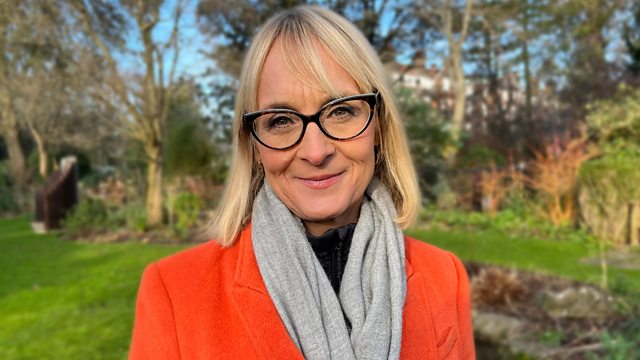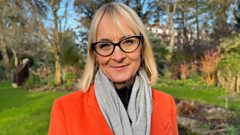
The AT Society
Louise Minchin appeals on behalf of the AT Society, a charity supporting children, young adults and their families whose lives have been affected by a diagnosis of ataxia telangiectasia (AT), a rare degenerative condition for which there is no cure.
Last on
More episodes
Clip
-
![]()
Louise Minchin's Lifeline Appeal for The AT Society
Duration: 08:06
The AT Society

The AT Society supports children, young adults, and their families whose lives have been shattered by a diagnosis of ataxia telangiectasia (AT) - a serious and complex, life-limiting condition, for which there is no cure.
AT is usually diagnosed when a child is around 3 years old. It affects the brain and progressively limits the body鈥檚 coordination and movement. By the age of 10, most children with AT will be making regular use of a wheelchair. Sadly, their average life expectancy is just 26 years old.
鈥淏eing diagnosed with such a cruel condition can be a lonely and frightening experience for the individuals and their families. There are no days off - the stress and worry of coping never goes away.
This is why the work of the AT Society is so vital. We aim to make a positive, lasting difference by providing the right care, support, and opportunities to live well with the condition. Whether that is running a helpline to support parents at crisis point, providing therapy for a child struggling to understand why they will never walk again, offering social events to reduce isolation in teenagers, or funding bereavement support, we are here for them, at every stage of the condition. Helping to give more good hours and more good days.
We also work collaboratively with the top AT scientists in the world to fund essential medical research to improve care and treatments for AT, and to ultimately speed up the process of identifying a cure, so in the future people are freed from the heartbreak of AT.鈥�
Louise Minchin

"I am so pleased to be telling you about the amazing work of the AT Society 鈥� a vital charity supporting children, young adults and their families affected by AT.
When a toddler is diagnosed with AT, life changes forever.
As a parent, I can only imagine how utterly devastated I鈥檇 feel trying to come to terms with the likelihood that my child鈥檚 future would be limited to their mid-twenties, and their short life would be very different to the way I鈥檇 imagined it.
The AT Society ensures families are not alone. Their expert staff give practical and emotional support helping AT families live healthier and happier lives. They also fund essential research so that one day AT will be a thing of the past.You can see for yourself how important the AT Society is by watching this programme and meeting Rose, Brae and George. Please donate what you can, to ensure it can continue to be the lifeline it is for so many. Thank you."
Siobhan, Brian and Brae

The AT Society immediately provided Siobhan and Brian with a lifeline of hope when there was nowhere else to go.聽 A home visit from the charity鈥檚 Family Support worker provided reassurance that they were not alone. The charity has continued to be close by their side ever since, providing expert care and advice with a human touch. When Brae and his family were faced with complex medical challenges, stresses over home adaptations to accommodate Brae鈥檚 changing needs, and confusion and worry about disability equipment in his active teenage years, they knew instantly who to call.聽聽
George and Michele

His mother, Michelle, witnessed how much the symptoms of AT and the degeneration of his physical abilities started to affect George鈥檚 mental health. She turned to the AT Society who were able to provide the family with practical and supportive advice, and with counselling to help George develop coping mechanisms to live with this rare condition. Over the years, the charity has also helped George and his family to attend its annual social weekend, where he has built up a support network of close AT friends. When they are together, no explanations are needed, everyone understands - there is a real strength in that.聽聽
Jenna, David and Rose

The AT Society were able to play a key role helping Rose鈥檚 teachers to understand the specific needs pupils with AT might require through their education. In consultation with the AT Society and her teachers, her parents, Jenna and David, worked to move Rose to a specialist school. It was a long, uphill battle, but starting her new school has been life-changing for Rose. In her mother鈥檚 words, Rose is now 鈥榣oving life!鈥� and feels more hopeful about a brighter future.
Credits
| Role | Contributor |
|---|---|
| Presenter | Louise Minchin |
| Producer | Arif Mahmood |
| Director | Arif Mahmood |
| Executive Producer | Hardeep Giani |
Broadcasts
- Sun 29 Jan 2023 13:55
- Tue 31 Jan 2023 08:50

